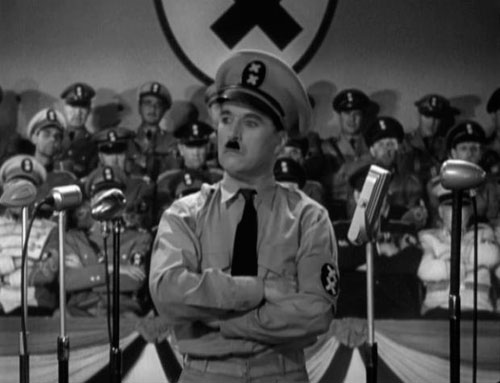Really Boring Books (You Have to Read Anyway): Dead Aid, Dambisa Moyo.
Written by David Dylan
This is quite a thin book. I picked it up in an airport bookshop confident that two weeks in rural France (near Vesoul - a really boring place you have to visit anyway) would just about be good for 161 pages of more of the same, boring, economic drivel. (Minus notes and references.) By the time the plane was circling Basel airport, I'd switched to the very non-boring book of philosophy jokes I'd also bought just in case.
Not only does this book manage to cram all the bore of a thick book into something the size of an overgrown leaflet, it's (by consequence) also too flimsy to hit left-wingers with.
What a waste of time and ten bucks? No. Not really. You see, Dambisa is one sharp cookie. She's African (somehow I should mention this, although it's akin to reminding people that Paddy O'Rourke is European.), an amazingly accomplished economist who has worked at Goldman Sachs, the World Bank and holds a Masters from Harvard University.

To be honest, I expected a picture of some old woman in semi-African dress, trying to look "ethnic" you know. But this (left) is her. (Pictures from Wikipedia) Now who is with me, she should get together with Johan Norberg (right) and they should have beautiful, hyper-intelligent babies?
In layman's terms; she knows her shit.
She also seems to have this thing against Bono, so she's by default OK in my book.

My book.
The overarching message in this book is quite simple; fucking stop, the fuck, 'helping' fucking Africa with aid that is clearly only doing fucking harm, not good. You can see with your own eyes, so why the fuck keep doing it? The fuck?! (Paraphrased. The 'fucks' are mine.)
There are several problems with the aid system:
1) It destroys local economies.
Money flowing in creates artificial pockets of wealth. The economics of this are quite intricate, but I'll try to put it in simple terms.
Sand is quite cheap. You can pick it up just about anywhere and unless you want it cleaned, in a certain colour and so on, you can get it for free. This is because it is literally almost everywhere. Gold, however, is pretty expensive. This is because it is not everywhere (in useful quantities, in any case) and it takes some real effort to obtain. There is, therefore, less of it. So gold is more expensive, it has more value. Both sand and gold are quite unremarkable natural resources. In fact, gold is quite useless. Gold is the Paris Hilton of the natural world; apart from some highly specific real uses it does nothing but look pretty. But people like pretty. So they buy it. Other people know this so they stockpile it, especially when they stop trusting money because it's starting to behave like sand.
Money is a resource somewhere between gold and sand. In a healthy economy there's enough of it so everyone can have some, but not so much that people would rather sweep it out of the house than keep it.
Money represents the value of other stuff. What you have in your wallet is not ten cents worth of various metals and another ten cents worth of printed paper. It's gas for your car, food for your family, a lapdance and a few beers. When you spend it, people give you stuff or perform a trick for it. The fiction of value is maintained because we all play by these rules. The actual value of each dollar is decided by what it can buy. What it can buy is decided by what you, and millions of others like you, can realistically spend of it (or, how much of it there is around). Now, suppose you pour free money, in enormous quantities, into this intricate system. Money becomes less like gold and more like sand. Suddenly there's so much more of it, so people start asking for more of it in trade for their goods or tricks.
It's called 'inflation' and it's quite common worldwide because governments like to print some extra money every now and then as a trick to steal your money without actually taking it. They get to spend it (once) at the old value and then, presto magico, all of it has become worth a little less.
This can work two ways; inflation is good for me because the trick I perform is in certain demand and I simply ask for a raise or up my hourly fee once a year. The mortgage on my house, however is a fixed amount and since the money it is counted in becomes worth less while my actual wealth stays the same or goes up, the actual value of what I owe the bank becomes less and I make money simply by not paying off this loan.
It is bad for people who do not have something they can mortgage. If you are a farmer living off what you sell of your crops, you are going to be behind of the curve (because prices adjust slower than the inflation happens) and you get screwed for a few cents on every dollar. Money you have in the bank also generally gets less interest than the actual inflation, and if there's no bank in your town and you keep your cash under your sleeping mat you get no interest on it at all. Your savings therefore become worth less.
Now if you create really bad inflation, these people get screwed really bad. But banks, and the government get a raw deal too, because if overnight ten dollars go from ten lapdances to one, people are going to laugh all the way to the bank when they pay off all those loans, back taxes and so on. The banks then have less actual value for money, so they can give out fewer loans, fewer people can get startup funding for their business so fewer jobs are created...
In conclusion; if you upset the balance by pouring in more money into a society, you make money less valuable because there's more of it and it can be obtained with relatively less effort.
It gets even more complicated than that because the money pouring in is a foreign currency, but I'm keeping things simple. If you want complicated, read the book.
The worst part of it is that people in these areas don't even get to spend the extra cash once; at best a select few get to, and the value they obtain by not buying lapdances but stuff that sorta will resell at good value anyway (like gold) they do not share either. Come on, would you? So money becomes worth less and stuff that could stand in for money in value flows towards a few deep pockets too.
2) It creates artificial pockets of wealth.
So, money pours in. If it doesn't stick to the lining of the pockets of mad dictators (more on that later) it needs time to spread out (if it doesn't flow right back to the west, more on that later, too) and while it does so it becomes worth less as time goes on. It comes in in one big bunch, then it gets chopped up in smaller bunches and handed around to, presumably, worthy recipients who proceed to spend it.
Imagine a community of farmers. Some do reasonably well and a few can't sustain their family. (More on THAT later, too.) So, some fair trade westerners waltz in and start paying those suffering few 'fair' prices. (According even to them, calculated by taking local market prices and adding a percentage.) Suddenly some farmers have more money to spend than the rest. The market responds by asking more money for stuff farmers need, after all; it's there and shopkeepers have mouths to feed, too. Suddenly the farmers who were doing allright find themselves paying more for all the stuff they need and they suffer. Meanwhile the farmers who get fair-trade prices become completely dependent on market prices and foreign buyers. No local can afford their products anymore, they just spent their savings on seed that inexplicably cost so much more this year than last.
Of course, these wealthier farmers spend their money too, so the rest of this farming community eventually may well get to see some of the colour of that cash. By the time they do, however, our old friend inflation has paled these colours quite a bit.
And then market prices drop, as they do every so often. Ten percent more than less, is still less. But seed is still more expensive. Oops. Thanks 'fair' trade.
3) It rewards incompetence and stifles change.
Those few farmers who couldn't feed their families? Yeah, they need to go. It sounds harsh, but there's only so much demand for products, only so much you can grow on land without depleting it, and so on. And if you are actually just bad at it, well, it's tough but no one is helped by you still trying to do it.
So, actually, these farmers are -in the long run at least- better off becoming better farmers or just doing the fuck something else. Really. I use strong language because I fucking care. OK? It's tough love, but it's love.
But nooo, we fund them. Money for not changing. How anyone EVER thought this could be a good thing really is beyond me.
Now some (private, mostly) organisations do try to school these farmers. And there are those who see this reality and try to help local communities to develop more sustainable ways of feeding themselves; better farming methods, schools, and so on. Unfortunately, all these great efforts run into the other problems like...
4) It funds dictators, not farmers.
A large part of this book goes into how the west actually uses aid to get stuff that they want; a stable government in a region where they want to drill for oil for example. And 'stable' doesn't always equate to 'nice'. A staggering amount of 'aid' actually went towards building palaces and chartering airplanes for shopping sprees in Paris. There can be no doubt whatsoever that the aid-givers knew this. A palace isn't easily shoved under the bed when the auditors come 'round.
A healthy economy, however, ultimately needs a democracy or at the very least a reasonably safe society where people can depend on the rule of law. People need to feel secure that whatever they invest in a business is going to be theirs for long enough for them to get a return out of it. This means you need some way of keeping those with guns and nightsticks from kicking people out of their factory and giving it to the dictator. Locals may well put up with that sort of thing because they have to, but foreigners aren't going to. This means there is no 'healthy' money coming in, money that creates as much value (or more) than it takes because it creates jobs, sets up an infrastructure for export, and so on.

What is this oldfashioned crap? Someone go and steal me a microphone factory, NOW!
5) It creates war, not peace.
So, why do some dictatorships seem to do so well? They create 'war economies' where jobs and production are artificially created by preparing for war. Hitler started with a country suffering under hyper-inflation and huge poverty, and created a wealthy, thriving society in a few years. The downside was that he had to go to war. See, he did all this by building this huge war machine. There were jobs a-plenty on the one hand, but tanks tend to take up space and rust on the other. And they still cost money and resources to make. So, to keep the economic cycle rolling and to find fresh funds somewhere, he had no choice but to start wars. (Keeping things simple, so glossing over the actual economics of it. Just trust me on this.) Many dictators in Africa took a page from that same book, and the west loved it.
Loved it? Yes, we did. See, we had this problem with the Sowjet Union. We didn't quite feel like going to war with them directly, but we had this race going on with the stakes being who got to pull the strings in what part of the third world. And those strings fished in lots of wealth. (Later...)
So, if some mad dictator who liked to go shopping in Paris wanted weapons to take the stuff of some other mad dictator who preferred the high streets of Moscow, sure, he could have them. And 'aid' sounds so much better than 'buying a puppet regime who will do what WE say'.
And if said dictator let his people starve? Well, lest these people begged some guns from Moscow and shot holes in our nice ally, we'd better send them some food now...
Then, of course, some still did. Democracy has been tried in Africa, on many occasions. But what these fresh new democratic governments then found was a country where no one had actually built anything useful. No factories, no roads... just these rusty old tanks. More aid please... and the west gave it, provided of course... and there they went again.
6) It doesn't hang around.
Yeah, this is going to be a short one. A lot, most even, of that aid? It's not a gift. It's a loan. With strings attached, like having to buy all the stuff they buy with it from the aid giving country, at mysteriously inflated prices.
7) When it leaves, it takes its pals with it.
Another short one; loans come with interest. Nowadays many African countries would in essence be kinda healthy economies (kinda, because there are still many issues to resolve) were it not for the fact that past mad dictators loaned so much from the west, that the current mad dictators are paying interest like they are at this great cosmic strip club... the ass wiggles, money leaves hands and all they have is this feeling that they didn't even get a screw out of it. So, obviously, new mad dictators need new palaces, so... more aid-loans please...
8) It doesn't help the west in the long run, either.
So, guess who is really making a killing in Africa these days? The US? Nah. Europe? You'd think so, after all Europe is pretty close to Africa and with all the cheap labour there they could surely get their stuff made there cheaper than in... here it comes... China.
China is making a killing. China? Yeah, China. I'll repeat; communist, dissident-killing, Tibettans-torturing, one-child-policy-making, fucking arms dealing to every fucking terrorist who wants them, fucking China.

OK, so I just bought Ruanda, now if my bid on Ethiopia comes through, maybe I can afford to buy my daughter back from the iPad factory... (Picture by Melanie Dornier - Satire by David Dylan.)
How? By not giving aid. They do build roads, factories, ports, and so on. Out of kindness? No, because Africa is actually fabulously wealthy. It has oil, diamonds, steel, gold... in fact, without Africa we in the west would be living in clay huts. Really. No bullshit. And China is booming economically, because unlike Africa it has ports, roads and so on AND cheap labour. So while Africa is like, a few days by boat away AND has all this shiny stuff we want just sitting there in the ground, and China quite a bit farther off, it's still cheaper (or possible at all) to get stuff made in China than in Africa.
So, the Chinese build shit cheaply. We buy shit cheaply from China. China then invests in Africa, where building the road, building the port and building the factory is cheaper still, and gets all the resources cheaply so they can produce shit cheaply, and we buy shit cheaply...
And while we buy the iPhone 5, made in China, silently China secures all the gold, platinum, steel, oil, and all that other stuff that actually is needed to make these iPhones. If we aren't REALLY careful, these fucking commies will out-capitalist us all before long, if it isn't too late already.
And for Africa it's actually great. Way to shoot ourselves in the foot, huh?
So, what to do about it?
Well, Dambisa has some straightforward answers to that. You just have to sludge through some pretty boring shit to get at them; long lists of what mad dictators did wrong, boring economic stuff explained boringly. I mean, she tries to make this stuff accessible for us plebs who didn't go to Har-la-di-dah-vard but she kinda sucks at that. She even brings in some fictional country to explain stuff with, but then seems to forget about it for five chapters until it suddenly plops up again near the end. Brilliant economist? Yes. Remarkable person? Yes. Entertaining writer? No.
Sorry D.
So, what are these solutions? Well, start by out-capitalisting China before these fuckers have their noodle carts where a McDonalds should be. It would help if we forgot about those aid-debts. (She even explains how we'll make more by doing so than by trying to cash in on interest when the chicken has no feathers left.) She goes into some simple economic measures, with pretty solid examples from the wild... trouble is that to the layman it just sounds a tad bit too much like what we fill in on our tax forms.
Oh, and incidentally, stop the fuck with these fucking sacks of grain and mosquito nets, too. You see, while right now a sack of wheat may feed some starving kids and mosquito nets keep out malaria-transmitting mosquito's (which could be easily eradicated using DDT, but we in the west kinda frown upon that, so rather than spraying liquid death upon some pesky buzzing disease with wings, we let people die, but that's another article) they come free, and free tends to be cheaper than what the local trader charges. Giving people shit makes them poor? Yes, it does, when it means their job goes poof. OK? It's actually one of the few points D. manages to make clearly and without reiterating the last ten decades of New Economist.
But one thing is very, very, easy to grasp from all of that:
Fucking. Stop. Fucking. Sending. Fucking. Aid.
The fuck?!
Metadata:
- ID: 5850
- Type: 2
- Title: Really Boring Books (You Have to Read Anyway): Dead Aid, Dambisa Moyo.
- Subtitle:
- Author: David Dylan
- Author ID: 109
- Date Posted: 2011-04-03T19:37:54